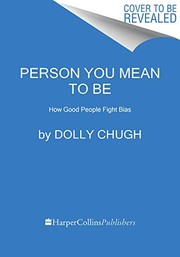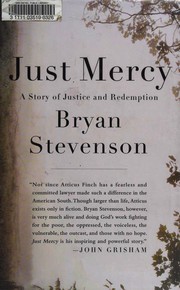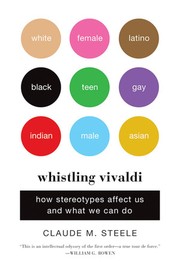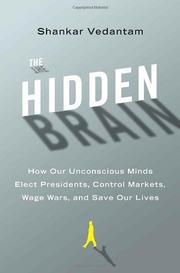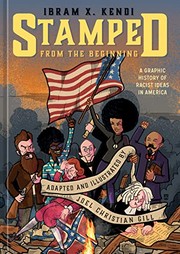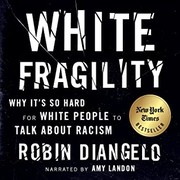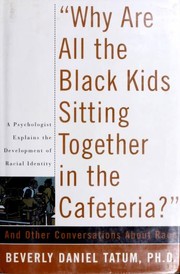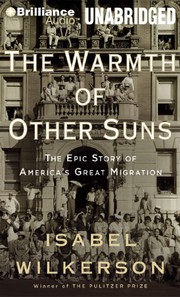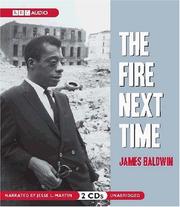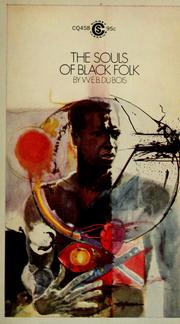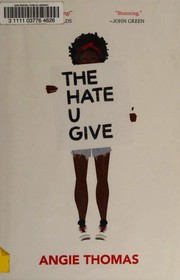Are you curious about the intricate nature of implicit bias and its impact on society? Look no further, as we delve into the 20 best books about implicit bias that offer profound insights into this complex phenomenon. These books provide a deep understanding of unconscious prejudices and offer valuable strategies for addressing them. Whether you’re a psychology enthusiast, a social justice advocate, or simply intrigued by human behavior, these books on implicit bias are essential additions to your reading list.
Contents
- 1 20 Best Books About Implicit Bias
- 2 Biased: Uncovering the Hidden Prejudice That Shapes What We See, Think, and Do
- 3 Blindspot: Hidden Biases of Good People
- 4 The Person You Mean to Be: How Good People Fight Bias
- 5 Just Mercy: A Story of Justice and Redemption
- 6 Whistling Vivaldi: How Stereotypes Affect Us and What We Can Do
- 7 The Hidden Brain: How Our Unconscious Minds Elect Presidents, Control Markets, Wage Wars, and Save Our Lives
- 8 Stamped from the Beginning: The Definitive History of Racist Ideas in America
- 9 Race Talk and the Conspiracy of Silence: Understanding and Facilitating Difficult Dialogues on Race
- 10 The Color of Law: A Forgotten History of How Our Government Segregated America
- 11 The New Jim Crow: Mass Incarceration in the Age of Colorblindness
- 12 White Fragility: Why It’s So Hard for White People to Talk About Racism
- 13 Why Are All the Black Kids Sitting Together in the Cafeteria?: And Other Conversations About Race
- 14 The Warmth of Other Suns: The Epic Story of America’s Great Migration
- 15 The Racial Healing Handbook: Practical Activities to Help You Challenge Privilege, Confront Systemic Racism, and Engage in Collective Healing
- 16 The Condemnation of Blackness: Race, Crime, and the Making of Modern Urban America
- 17 The Fire Next Time
- 18 So You Want to Talk About Race
- 19 The Souls of Black Folk
- 20 Between the World and Me
- 21 The Hate U Give
- 22 Conclusion
- 23
- 24 Explore 20 Best Making Conversation Books with Our 2024 Update
- 25 Discover the Best Abuse Books in the 2024 Updated Edition
- 26 Books on Sisters Relationship: Discover the Top 20 in our 2024 Updated List
20 Best Books About Implicit Bias
Biased: Uncovering the Hidden Prejudice That Shapes What We See, Think, and Do
by Jennifer L. Eberhardt
Biased: Uncovering the Hidden Prejudice That Shapes What We See, Think, and Do by Jennifer L. Eberhardt is a captivating exploration of the impact of implicit bias on our perceptions and actions. Eberhardt, a renowned social psychologist, delves into the subconscious prejudices that influence our behavior, often without us even realizing it. Through compelling research and real-life examples, she illuminates how bias can shape everything from our interactions with others to the criminal justice system. This thought-provoking book about implicit bias offers profound insights into the ways in which our minds can be influenced by stereotypes and societal norms. Eberhardt’s work is a vital contribution to the ongoing conversation about bias and discrimination, and a must-read for anyone seeking to understand and address the complexities of human perception and behavior.
Blindspot: Hidden Biases of Good People
by Mahzarin R. Banaji and Anthony G. Greenwald
Blindspot: Hidden Biases of Good People is a thought-provoking book on implicit bias that delves into the unconscious prejudices that influence our everyday decisions and interactions. Written by renowned psychologists Mahzarin R. Banaji and Anthony G. Greenwald, this insightful book challenges readers to confront their own hidden biases and consider the impact of these biases on society at large. Through compelling research and real-life examples, the authors explore how implicit biases can shape our perceptions, attitudes, and behaviors, often without our awareness. By shedding light on this complex and often overlooked phenomenon, Blindspot offers readers a deeper understanding of how bias operates and the potential for change. This compelling book about implicit bias is a must-read for anyone interested in psychology, social justice, and the complexities of human behavior.
The Person You Mean to Be: How Good People Fight Bias
by Dolly Chugh
The Person You Mean to Be: How Good People Fight Bias by Dolly Chugh is a compelling book about implicit bias. Chugh, an award-winning social psychologist, delves into the concept of unconscious biases and their impact on our decision-making and behavior. She offers practical strategies for individuals to recognize and combat their biases, fostering a more inclusive and equitable society. Chugh’s insightful anecdotes and research-backed insights make this book a valuable resource for anyone interested in understanding and addressing implicit biases. Through engaging storytelling and thought-provoking analysis, The Person You Mean to Be challenges readers to become more aware of their biases and take meaningful action to create positive change. This book is a must-read for those seeking to become better allies and advocates for diversity and inclusion.
Just Mercy: A Story of Justice and Redemption
by Bryan Stevenson
Just Mercy by Bryan Stevenson is a compelling and eye-opening book about the deep flaws in the criminal justice system. Stevenson, a passionate advocate for the marginalized, shares his experiences working to overturn wrongful convictions and fight for those unfairly sentenced to death. Through poignant storytelling, he sheds light on the pervasive issues of prejudice, discrimination, and injustice within the legal system. This powerful narrative challenges readers to confront their own biases and assumptions, making it a must-read for anyone interested in understanding the complexities of the justice system. Just Mercy is a thought-provoking book about implicit bias and the urgent need for reform, offering a glimmer of hope for justice and redemption in the face of systemic inequality.
Whistling Vivaldi: How Stereotypes Affect Us and What We Can Do
by Claude M. Steele
Whistling Vivaldi: How Stereotypes Affect Us and What We Can Do by Claude M. Steele is a thought-provoking book on implicit bias. Steele, a renowned social psychologist, delves into the concept of stereotype threat and its impact on individuals’ behavior and performance. Through compelling research and real-life examples, he explores how stereotypes can shape our thoughts and actions, leading to self-doubt and underperformance.
However, the book also offers hope by providing strategies to counteract the negative effects of implicit bias. Steele’s insights into how we can mitigate the impact of stereotypes and create a more inclusive environment make this book a valuable resource for anyone seeking to understand and address the pervasive influence of implicit bias in society. Whistling Vivaldi is a must-read for those interested in understanding and overcoming the effects of stereotypes on individuals and communities.
The Hidden Brain: How Our Unconscious Minds Elect Presidents, Control Markets, Wage Wars, and Save Our Lives
by Shankar Vedantam
The Hidden Brain is a captivating book on implicit bias, written by Shankar Vedantam. In this eye-opening exploration of the unconscious mind, Vedantam reveals how our hidden biases shape our everyday decisions and interactions. Delving into the realms of politics, economics, and social dynamics, he illustrates how these biases can influence our voting patterns, consumer choices, and even our opinions on important issues. Through compelling storytelling and fascinating research, Vedantam sheds light on how these hidden forces can sway the course of history, from presidential elections to global conflicts. This thought-provoking book about implicit bias offers valuable insights into the ways our minds work behind the scenes, and how we can become more aware of our own biases to make better, more informed decisions.
Stamped from the Beginning: The Definitive History of Racist Ideas in America
by Ibram X. Kendi
Stamped from the Beginning: The Definitive History of Racist Ideas in America by Ibram X. Kendi is a groundbreaking book about implicit bias that traces the development and impact of racist ideas throughout American history. Kendi explores the origins of these ideas, their evolution over time, and their enduring influence on society. Through meticulous research and compelling storytelling, he dismantles the myth of a post-racial America and exposes the deep-rooted nature of racism. This powerful and eye-opening book about implicit bias challenges readers to confront their own beliefs and attitudes, while offering a path towards understanding and dismantling the pervasive influence of racist ideas. Kendi’s work is a must-read for anyone seeking to gain a deeper understanding of the complex and insidious nature of racism in America.
Race Talk and the Conspiracy of Silence: Understanding and Facilitating Difficult Dialogues on Race
by Derald Wing Sue
Race Talk and the Conspiracy of Silence by Derald Wing Sue is a groundbreaking book that delves into the complex and often uncomfortable conversations surrounding race. This insightful book explores the dynamics of difficult dialogues on race and offers practical strategies for facilitating these conversations in a constructive and meaningful way. Dr. Sue’s work sheds light on the impact of implicit bias and the ways in which it influences our interactions and perceptions of race. By addressing the conspiracy of silence surrounding race, this book provides valuable insights for individuals and organizations seeking to engage in open and honest discussions about race and racism. With its thought-provoking analysis and actionable guidance, Race Talk and the Conspiracy of Silence is an essential resource for anyone committed to understanding and addressing the complexities of race in today’s society.
The Color of Law: A Forgotten History of How Our Government Segregated America
by Richard Rothstein
The Color of Law: A Forgotten History of How Our Government Segregated America by Richard Rothstein is a groundbreaking book on implicit bias that delves into the systematic segregation of American cities by government policies. Rothstein uncovers the deliberate and discriminatory practices that have shaped our urban landscape, perpetuating racial inequality and injustice. Through meticulous research and compelling storytelling, he explores the role of federal, state, and local governments in enforcing residential segregation, and its profound impact on communities of color. This thought-provoking book about implicit bias challenges readers to confront the enduring legacy of segregation and its implications for contemporary society. Rothstein’s powerful narrative sheds light on a hidden history, offering crucial insights into the ongoing struggle for equality and justice.
The New Jim Crow: Mass Incarceration in the Age of Colorblindness
by Michelle Alexander
The New Jim Crow: Mass Incarceration in the Age of Colorblindness by Michelle Alexander is a groundbreaking book on implicit bias that examines the cyclical nature of racial inequality in the American criminal justice system. Alexander argues that the mass incarceration of African Americans is a modern form of racial control, similar to the Jim Crow laws of the past. She highlights how the War on Drugs and tough-on-crime policies have disproportionately targeted people of color, leading to a system of racialized social control. The implicit bias book sheds light on the ways in which the justice system perpetuates racial discrimination and perpetuates a racial caste system in the United States. Alexander’s work challenges readers to confront the realities of systemic racism and to advocate for meaningful change.
White Fragility: Why It’s So Hard for White People to Talk About Racism
by Robin DiAngelo
White Fragility: Why It’s So Hard for White People to Talk About Racism by Robin DiAngelo is a thought-provoking book on implicit bias that explores the discomfort and defensiveness that many white people experience when confronted with discussions about racism. DiAngelo delves into the concept of white fragility and how it hinders productive conversations about race, offering insights into how these reactions are rooted in the socialization of white people in a racially stratified society. The book also provides strategies for white people to engage in meaningful conversations about race and confront their own biases. DiAngelo’s compelling analysis challenges readers to critically examine their own attitudes and behaviors, making it an essential read for anyone seeking to understand and address the complexities of racism and implicit bias in contemporary society.
Why Are All the Black Kids Sitting Together in the Cafeteria?: And Other Conversations About Race
by Beverly Daniel Tatum
Why Are All the Black Kids Sitting Together in the Cafeteria?: And Other Conversations About Race by Beverly Daniel Tatum is a thought-provoking exploration of racial identity development in America. Tatum, a renowned psychologist and educator, delves into the complexities of race and racism, offering insights into how they shape our perceptions and interactions. The book examines the concept of racial identity and the impact of societal structures on individuals, particularly in educational settings. Through personal anecdotes and research, Tatum sheds light on the experiences of people of color and provides a compelling analysis of how racial dynamics manifest in everyday life. By addressing the phenomenon of racial segregation and the formation of racial affinity groups, Tatum challenges readers to confront their own biases and engage in meaningful conversations about race. This book is a must-read for anyone seeking to understand and address implicit bias in today’s society.
The Warmth of Other Suns: The Epic Story of America’s Great Migration
by Isabel Wilkerson
The Warmth of Other Suns: The Epic Story of America’s Great Migration by Isabel Wilkerson is a groundbreaking work that explores the mass migration of African Americans from the South to the North and West during the 20th century. Wilkerson’s extensive research and powerful storytelling bring to light the untold stories of those who sought a better life, free from the oppression and discrimination of the Jim Crow South. Through the personal narratives of three individuals who made the journey, Wilkerson sheds light on the complexities of race, identity, and belonging in America. This book offers a profound exploration of the systemic and implicit bias that shaped the experiences of millions of African Americans, and it remains a poignant and relevant read for anyone seeking to understand the legacy of racism in the United States.
The Racial Healing Handbook: Practical Activities to Help You Challenge Privilege, Confront Systemic Racism, and Engage in Collective Healing
by Anneliese A. Singh
The Racial Healing Handbook by Anneliese A. Singh is a powerful and practical guide that offers a comprehensive approach to addressing privilege, systemic racism, and collective healing. This book provides readers with a range of activities and exercises designed to challenge implicit bias, confront systemic racism, and engage in the essential work of racial healing. Singh’s insightful and compassionate approach encourages readers to confront difficult truths and take meaningful action towards creating a more just and equitable society. With its focus on practical strategies and collective healing, this book is an essential resource for individuals and communities committed to addressing issues of privilege and systemic racism.
The Condemnation of Blackness: Race, Crime, and the Making of Modern Urban America
by Khalil Gibran Muhammad
The Condemnation of Blackness by Khalil Gibran Muhammad is a groundbreaking book on the intersection of race, crime, and urban development in America. Through extensive research, Muhammad explores the historical roots of the societal perception of blackness as inherently criminal, uncovering how this stereotype has shaped modern urban policies and practices. The book delves into the creation of ‘scientific’ theories that pathologized blackness, leading to discriminatory policies and practices that continue to impact black communities today. This thought-provoking exploration sheds light on the deep-seated prejudices and implicit biases that have influenced the development of modern American cities. Muhammad’s work challenges readers to confront their own implicit biases and reconsider the way race and crime have been intertwined in the making of modern urban America.
The Fire Next Time
by James Baldwin
The Fire Next Time by James Baldwin is a powerful and thought-provoking book about implicit bias, racism, and the struggle for racial equality in America. Through a collection of two essays, Baldwin examines the complex and deeply ingrained issues of race in the United States. He delves into the impact of racism on both the oppressed and the oppressors, and offers a searing critique of the societal structures that perpetuate racial injustice. Baldwin’s writing is raw, honest, and deeply moving, making this book a must-read for anyone seeking to understand the pervasive influence of implicit bias in our society. The Fire Next Time is a timeless and essential work that continues to resonate with readers today, challenging us to confront our own biases and work towards a more just and equitable world.
So You Want to Talk About Race
by Ijeoma Oluo
So You Want to Talk About Race by Ijeoma Oluo is a thought-provoking and essential read for anyone looking to better understand the complexities of race and racism in America. Oluo fearlessly tackles topics such as privilege, police brutality, microaggressions, cultural appropriation, and more, offering readers a comprehensive examination of the systemic issues that perpetuate racial inequality. Through personal anecdotes and in-depth research, Oluo provides practical guidance on how to engage in productive conversations about race, challenging readers to confront their own biases and become active allies in the fight for racial justice. This book on implicit bias is a powerful tool for individuals seeking to dismantle racism and create a more inclusive society.
The Souls of Black Folk
by W.E.B. Du Bois
The Souls of Black Folk by W.E.B. Du Bois is a seminal book about implicit bias, racial inequality, and the African American experience. Published in 1903, this groundbreaking work delves into the complexities of race relations, the psychological impact of discrimination, and the struggle for equality. Du Bois eloquently explores the duality of being African American in a society marred by prejudice and discrimination, shedding light on the deep-seated biases that permeate every aspect of life. Through powerful prose and insightful analysis, Du Bois challenges readers to confront their own implicit biases and actively work towards a more just and equitable society. The Souls of Black Folk remains a timeless and essential read, offering a profound understanding of the enduring legacy of racism and the resilience of the human spirit.
Between the World and Me
by Ta-Nehisi Coates
Between the World and Me by Ta-Nehisi Coates is a powerful and thought-provoking exploration of the black experience in America. Written as a letter to his teenage son, Coates delves into the realities of growing up black in a society plagued by systemic racism, violence, and oppression. The book offers a raw and unapologetic examination of the impact of white supremacy and the legacy of slavery on black bodies and minds. Coates challenges readers to confront their own complicity in perpetuating these injustices and to recognize the pervasive nature of implicit bias. Through personal anecdotes and historical analysis, Coates paints a vivid picture of the struggles and fears faced by black individuals in America, making it an essential read for anyone seeking to understand the complexities of race and privilege in society.
The Hate U Give
by Angie Thomas
The Hate U Give by Angie Thomas is a powerful and thought-provoking novel that delves into the complex issue of systemic racism and police brutality. The story follows sixteen-year-old Starr Carter, who witnesses the fatal shooting of her unarmed friend Khalil by a police officer. As Starr grapples with the aftermath of the tragedy, she finds herself torn between the impoverished neighborhood where she lives and the affluent prep school she attends. The novel explores themes of identity, social justice, and the impact of racism on individuals and communities. Through Starr’s perspective, readers gain insight into the pervasive effects of implicit bias and the importance of speaking out against injustice. The Hate U Give is a compelling and timely read that sheds light on the realities of racial discrimination and the need for change.
Conclusion
In conclusion, these 20 books about Implicit Bias offer valuable insights and perspectives on how unconscious prejudices affect our thoughts, behaviors, and decision-making processes. By delving into the complexities of implicit bias, these books provide readers with the knowledge and tools to recognize and address these biases in their personal and professional lives. Whether you’re looking to gain a deeper understanding of implicit bias or seeking strategies for creating a more inclusive society, these books are essential reads for anyone interested in promoting diversity and equity.
Which Implicit Bias book is best?
The best book on Implicit Bias can vary with personal preference, but three widely recommended titles are:
- Biased: Uncovering the Hidden Prejudice That Shapes What We See, Think, and Do by Jennifer L. Eberhardt,
- Blindspot: Hidden Biases of Good People by Mahzarin R. Banaji and Anthony G. Greenwald,
- The Person You Mean to Be: How Good People Fight Bias by Dolly Chugh.
Each offers valuable insights and could be a great starting point.
What are the best books to learn about Implicit Bias?
For those looking to learn about Implicit Bias, there is a wealth of literature that can provide a comprehensive understanding of the subject. Some of the most highly recommended books include:
- Biased: Uncovering the Hidden Prejudice That Shapes What We See, Think, and Do by Jennifer L. Eberhardt,
- Blindspot: Hidden Biases of Good People by Mahzarin R. Banaji and Anthony G. Greenwald,
- The Person You Mean to Be: How Good People Fight Bias by Dolly Chugh,
- Just Mercy: A Story of Justice and Redemption by Bryan Stevenson,
- Whistling Vivaldi: How Stereotypes Affect Us and What We Can Do by Claude M. Steele,
- The Hidden Brain: How Our Unconscious Minds Elect Presidents, Control Markets, Wage Wars, and Save Our Lives by Shankar Vedantam,
- Stamped from the Beginning: The Definitive History of Racist Ideas in America by Ibram X. Kendi,
- Race Talk and the Conspiracy of Silence: Understanding and Facilitating Difficult Dialogues on Race by Derald Wing Sue,
- The Color of Law: A Forgotten History of How Our Government Segregated America by Richard Rothstein,
- The New Jim Crow: Mass Incarceration in the Age of Colorblindness by Michelle Alexander
These books offer a range of perspectives on Implicit Bias, covering various aspects and approaches to the subject.
What are the best books on Implicit Bias?
The best books on Implicit Bias include:
- Biased: Uncovering the Hidden Prejudice That Shapes What We See, Think, and Do by Jennifer L. Eberhardt,
- Blindspot: Hidden Biases of Good People by Mahzarin R. Banaji and Anthony G. Greenwald,
- White Fragility: Why It’s So Hard for White People to Talk About Racism by Robin DiAngelo,
- Why Are All the Black Kids Sitting Together in the Cafeteria?: And Other Conversations About Race by Beverly Daniel Tatum,
- Race Talk and the Conspiracy of Silence: Understanding and Facilitating Difficult Dialogues on Race by Derald Wing Sue,
- The Hidden Brain: How Our Unconscious Minds Elect Presidents, Control Markets, Wage Wars, and Save Our Lives by Shankar Vedantam.
Each offers unique insights into the subject. While these books on the topic of Implicit Bias are highly regarded, it’s important to note that any list of ‘best’ books is subjective and reflects a range of opinions.
What are the best Implicit Bias books of all time?
Choosing the best Implicit Bias books of all time can vary depending on who you ask, but seven titles that are often celebrated include
- Biased: Uncovering the Hidden Prejudice That Shapes What We See, Think, and Do by Jennifer L. Eberhardt,
- Blindspot: Hidden Biases of Good People by Mahzarin R. Banaji and Anthony G. Greenwald,
- Whistling Vivaldi: How Stereotypes Affect Us and What We Can Do by Claude M. Steele,
- Race Talk and the Conspiracy of Silence: Understanding and Facilitating Difficult Dialogues on Race by Derald Wing Sue,
- The New Jim Crow: Mass Incarceration in the Age of Colorblindness by Michelle Alexander,
- Why Are All the Black Kids Sitting Together in the Cafeteria?: And Other Conversations About Race by Beverly Daniel Tatum,
- and White Fragility: Why It’s So Hard for White People to Talk About Racism by Robin DiAngelo.
Each of these books has made a significant impact in the field of Implicit Bias and continues to be influential today.



